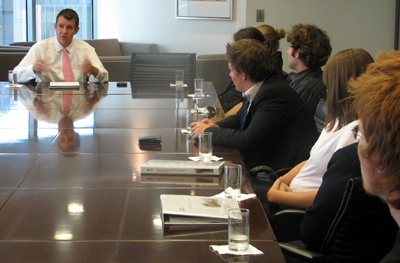Today it is reported that EMI has decided to drop the DRM (digital rights management) of songs on iTunes. In other words, songs by EMI will soon be downloadable from the Apple iTunes Store without any copy protection.
It is true that this will be popular for consumers. I, for one, hate being locked into one format for my downloadable songs. I worry that by buying a U2 song from iTunes that I’ll never be able to play my full collection of music on Windows Media Player, should I decide to churn players. I also worry that the resolution is too low on the downloadable songs, and would instead prefer a CD. This new move from EMI solves both problems, as the new downloads will be at double the current quality.
However, is the move to remove protection based on an optimistic view of society? Does it assume that people are generally good? Does it presume that people will not illegally copy music and give it to others? The problem for the record companies is that CDs already are unprotected, and this practice already goes on everywhere in brazen disobedience to the law. So, my guess is that this move recognises that people will continue to copy music no matter what ‘protection’ they provide. So, rather than try and restrict people from breaking the law, they will need to try a different approach.
Some copying of music is legitimate, for example, for personal backups of the media. Removing this restriction will mean the honest people will gain freedoms. Yet, it will also mean that the already rife practice of illegally distributing material will continue, since the bad guys will always work out a way to copy things.
I think it’s a very clever move from Steve Jobs from Apple, and also from EMI. It rewards honest customers, provides an incentive to buy from iTunes (the higher resolution) and gives up trying to restrict the lawbreakers. It is a mixture of a retrieval ethic (seeking the most loving outcome within the environment of an evil world) and clever marketing.



